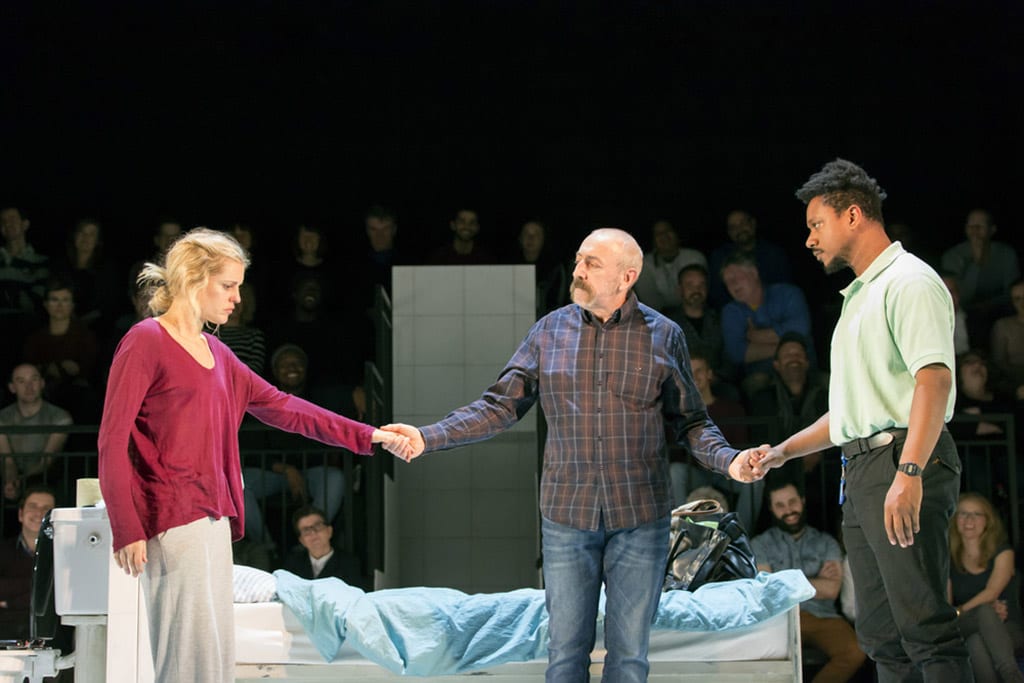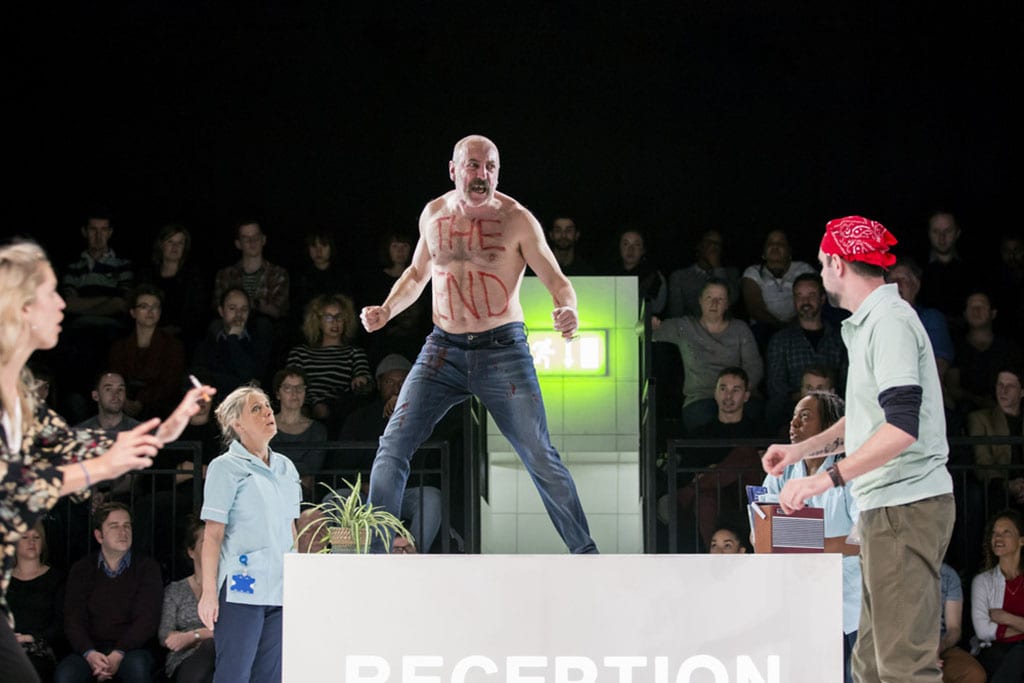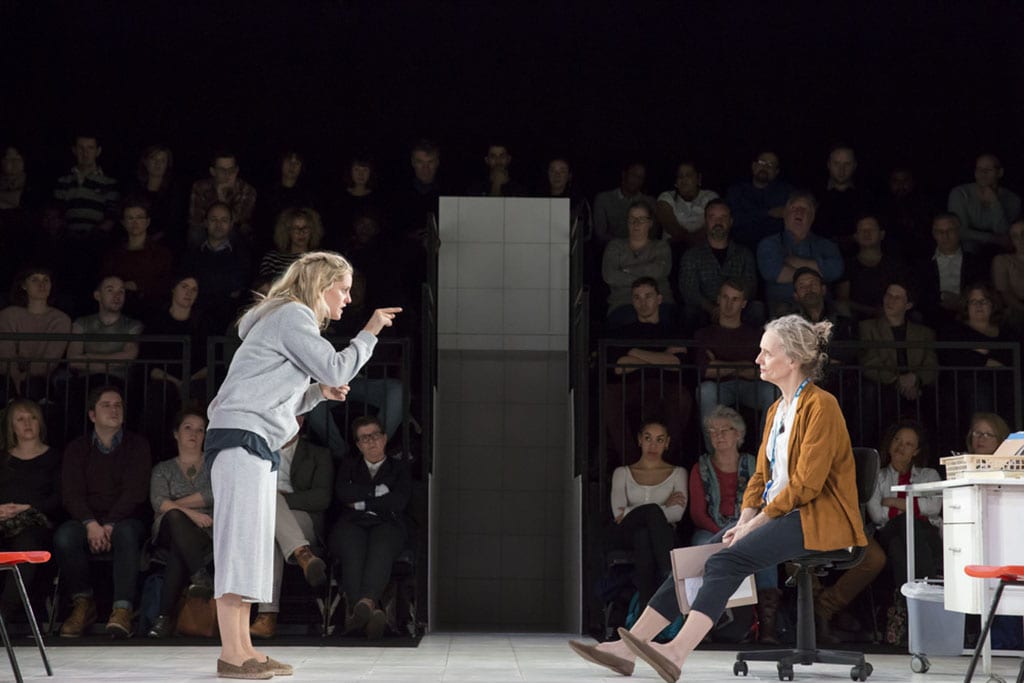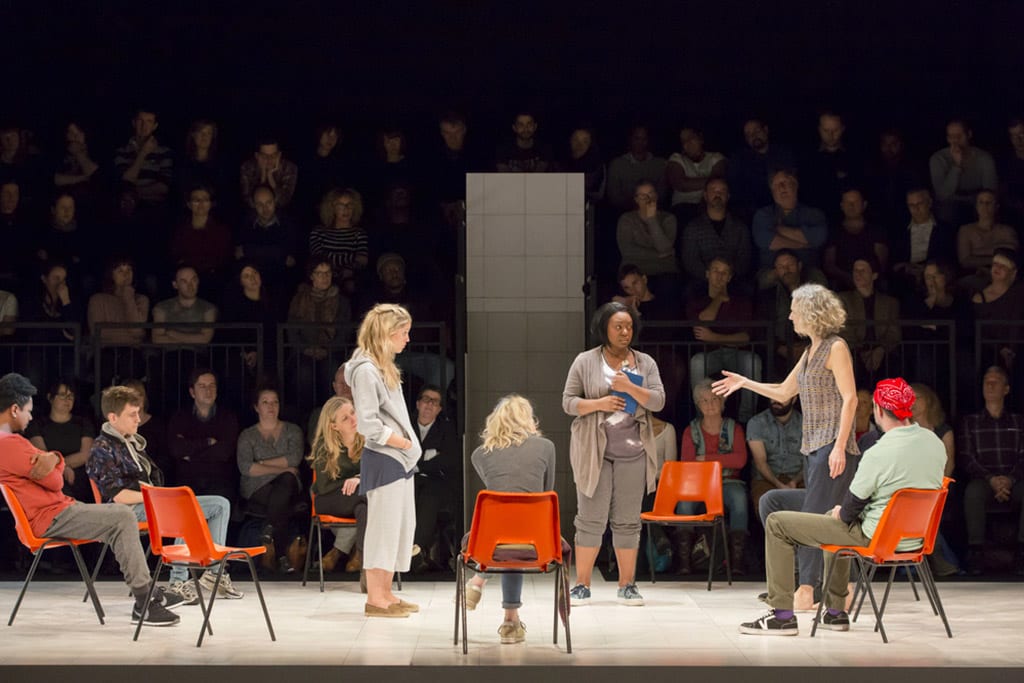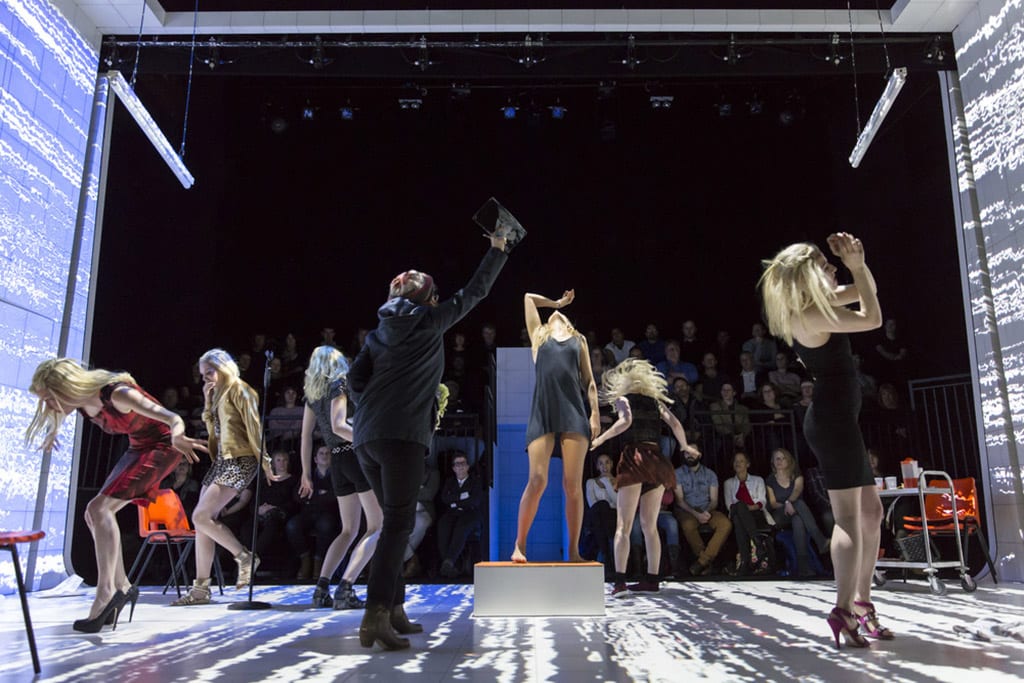The experimental psychiatrist R.D. Laing once argued that what is widely regarded as mental illness is in fact a rational response to an irrational situation. His logic was that the most irrational people are those who manage to stay calm in the face of prevailing violence, death, lack of meaning etc.
The central character in People, Places, Things is an alcoholic and a drug addict. She rejects the narratives that are enforced upon her by the ‘group’ she is made to join as part of her rehabilitation programme: that she’s to blame; that there are singular, discernible causes behind her difficulties; that divine intervention will get her out of this mess. She defends her lifestyle choices robustly, and is insistent that her problems be recognised as contingent, rational reactions to an irrational world – instead of being pathologised, and wrapped up in blame culture.
In some ways People, Places, Things is like a lot of other issue-based theatre. It comes with the standard benefits and shortcomings. On the plus side the dialogue is quick and insightful; on the down side it has a narrow a focus. It could also be said that the issues explored aren’t the most pressing. The introspective and disengaged aspect of addiction and of therapy culture is something that the play keeps on coming back to, which begs the question: if there are bigger things to be worried about, why not make a play about them instead?
And yet though People, Places, Things has the trappings of a well-made though slightly worthy issue-based drama, the experience of watching it is far from that of seeing something of this kind. And the main reason for this is Denise Gough.
She offers a really sensitive and believable portrait of a character who on paper would probably illicit little sympathy from most people. The challenges that Gough’s character faces, the many-sidedness of her response (showing vulnerability and strength, integrity and deceitfulness, certainty and confusion) and the utter self-rendering that Gough passes through in order to deliver this make this play a really harrowing but also touching experience. The whole auditorium stood, and they stood for her, even Gary Lineker.
There are some cringe elements to the production as a whole. The obligatory National Theatre nu-rave youth-culture aesthetic that imbues some of the ensemble work is a middle aged slash class person’s woefully misguided idea of what’s on-trend, and is pretty embarrassing. Some of the projection sequences are a bit limp (crumbling tiles and warping exit signs signalling cognitive dissonance anyone?). And sections of the dialogue feel a bit, dare I say it, studenty (clunky insertions of essayistic diatribes, thin stereotypes and name dropped critical theorists…) – but the delivery drastically diminishes this sense.
It’s a thought provoking piece. And it’s made really special by the performance given by Denise Gough.

